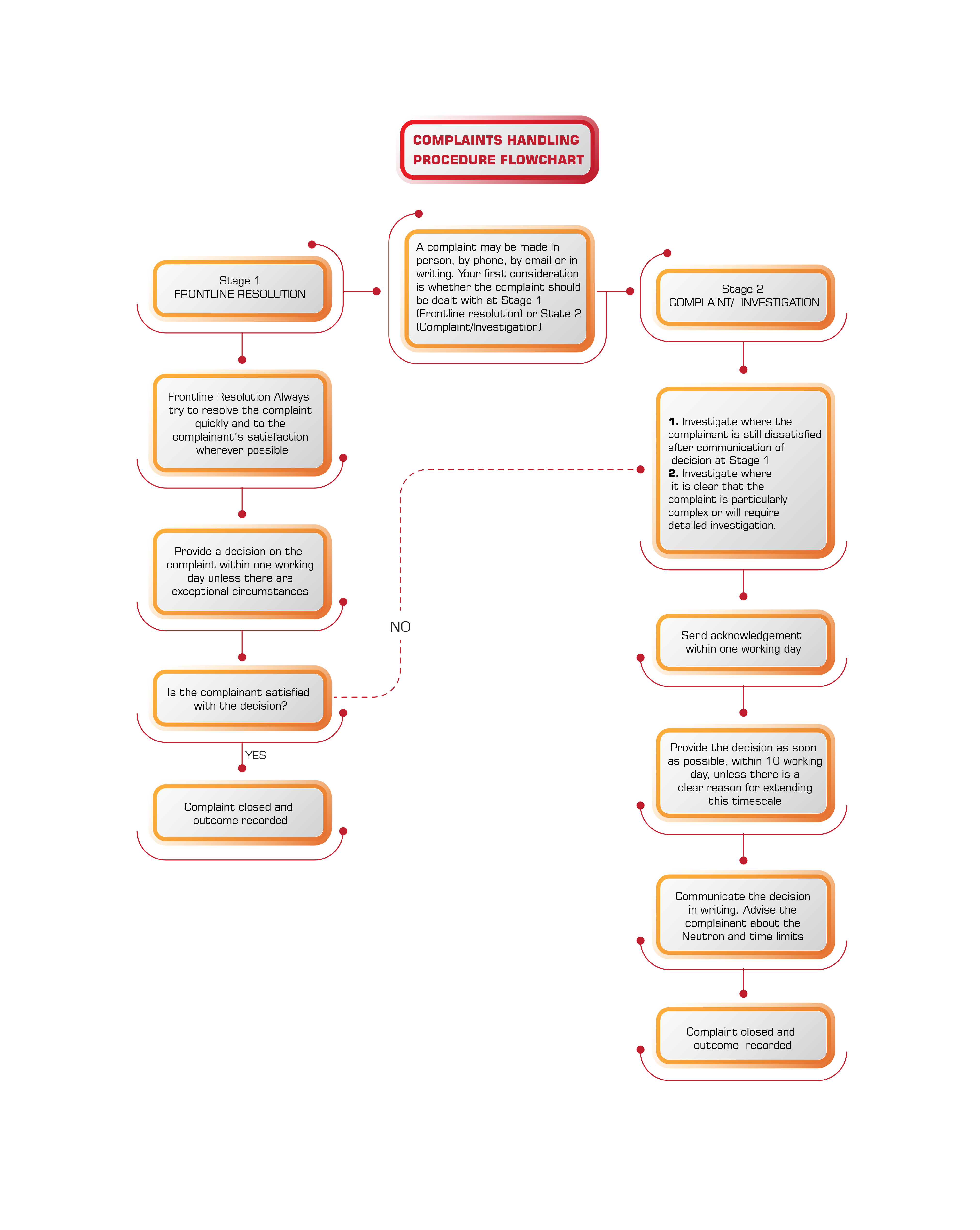Complaints management process
Compliant Form
Before we move on the components of an effective complaints’ management process, let’s quickly look at the checklist that your complaints process should fulfil:
It should be customer-focused
It should offer complete visibility and traceability
It should be easily accessible
It should be responsive
It should be objective and fair
It should maintain confidentiality
It should drive appropriate solutions
It should be properly reviewed
It should be accountable
It should drive continuous improvements
Establish the right controls in place according to the checklist mentioned above, you should be aware of the 5 Key Components of the Effective Complaints Management System. Those components are:
If you take the aspect of complaints management seriously, you must have a well-defined customer complaint policy. The policy must include:
A. Definition of a complaint.
B. All the channels and methods the organisation will use to receive complaints.
C. A detailed explanation of the complaints handling process including the dependencies on different departments or authorities.
D. A clear outline of the factors that make a complaint high on priority.
The complaints that fall in the category of high-on-priority can either be a complaint that points any sort of discrimination / violates any legalities or a complaint that could blemish the brand reputation such that the entire bottom line gets affected.
So, you must have a well-defined complaint policy for your organisation to ensure that every member of your complaint handling team follows a standardised process. It will help avoid more damage to the image of the brand and your ability to do your business.
Standardised Complaints Management Process
Like any other quality management process, the complaints management process should also be aligned in a standardised way to ensure that everyone follows the same processes and procedures to manage customer complaints effectively. Such sort of clarity in processes will help your internal team to be more efficient while limiting the compliance and quality risks in managing complaints.
If you don’t have a streamlined process for complaints management, you are likely to face bigger risks. Makes sure you formulate the complaints process after evaluating all the aspects such as receiving, investigating, and resolving the complaint. You may consider answering the following questions:
A. Are the timelines of the complaint responses specified?
B. Have you established a centralised database to store complaints and their respective investigations and resolutions?
C. Who will be responsible to record the complaint? Who will be involved in the investigation? Who will review the entire process? and much more.
D. Which complaints will go to management?
These are just a few of many questions that you can ask yourself and your team to establish the standardised complaints management process.
Assigning Responsibilities
Assigning responsibilities are one of the key factors that contribute to the success of a complaint management process. But this may grow complex with expansion of the organisation. If there will be no clarity about the responsibilities, you won’t be able to handle the complaints effectively.
So, whenever you create or review the complaints management process, make sure you have clearly communicated the responsibilities of each team member as to:
A. Who will be collecting and recording the complaints in the database?
B. Once the complaints are reported, who all will get the notification?
C. Which type of complaints will be resolved by which department?
D. Who will review the resolution of the complaint and approve it?
E. Who will notify the details to the top management?
F. When exactly a complaint should be escalated and to whom?
G. What are the respective timelines based on the complexity of a complaint?
H. What could be the consequences of not handling the complaints on time? Etc.
These questions depend on the internal structure of your organization. Clearly defining the responsibilities will reduce the chances of missing complaints, which could also hamper the brand image.

